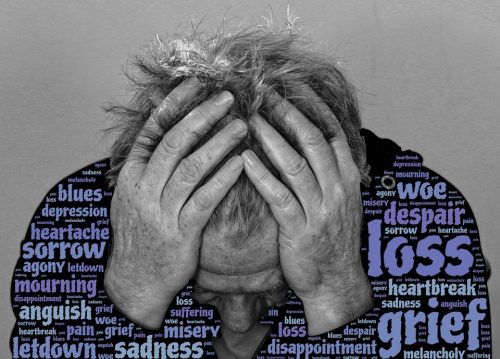
The grief that an individual may experience after losing someone they love typically causes mental health issues to arise if you do not accept the helping hand that others are offering to you. After all, you tend to close in on yourself and get stuck in the dark corners of your mind. Instead of moving on and allowing the soul of that loved one to rest in peace, you might keep on calling for them, asking why they left you early. The more days pass by with these thoughts swirling in your head, the more depression, anxiety, and perhaps even mania may affect you and prevent you from overcoming grief.
Now, considering you are reading this blog because you want to get over your negative feelings – or a friend asks for your help, but you have no idea what to do – you should know that there are four human needs that you ought to fulfill to feel good again. Like what Lisa S. Larsen, PsyD used to say, “When it’s too hard to cope with all of this alone, you might find it helpful to have someone who understands trauma and loss in your corner.” A grieving person is most likely at a loss due to the unfortunate events that took place in their life; that’s why they may be unaware of what those are right now. However, if there is at least one concerned fellow who will remind or help them achieve the following, the sun might shine brightly on this individual once more.

Variety
The first thing that you need is variety. When you stay in the same place for days or weeks, after all, your subconscious may consider it as a location for grieving. Hence, you might not feel a sense of urgency to move forward and let go of your negative emotions. You need to remember that “The best progress happens when you apply what you’ve learned outside that setting, in your real life.” Alicia H. Clark, Psy.D. often says.
What you can do is change some things to turn on that switch in your brain that will enable you to feel something other than sadness. For instance, move in with a friend or parents until your feelings stabilize. Try a new activity that you never imagined yourself doing. Look for another company to work for if necessary as well to see some variation in your life.
Significance
“Many people mistakenly believe that if you can’t see it like you can a broken bone, it must be less significant and therefore can be overcome by simply using willpower. If not, they mistakenly believe that people who suffer from depression are weak.” Simon Rego, PsyD once said. But, No! A probable reason why you cannot accept the death of a loved one is that, among all your relatives or friends, that is someone whom you feel most significant to. The person perhaps used to get in touch with you every day; you might have had meals or went everywhere together. When they passed away, therefore, you assumed that no one would see you as unique as they did in the past.

Nonetheless, that is not true. If it’s significance that you need to experience again, you can find recognition in other areas. Say, volunteer to help in an animal shelter or take on a new role in the office. Aside from that, let your living loved ones in your life. You may be special in their eyes too, but you have not realized it yet.
Connection
Love springs from the fact that you feel a deep connection to someone. This emotion will not come to life if you do not pay attention to the sweet gestures that others send your way or the gifts they give in kind. And without love in your heart, you may always think that you are alone, that nobody cares for you.
Things may improve, however, once you prioritize connecting with everyone. For instance, say hi to the barista in your favorite cafe and ask how their day is going, spend a few minutes exchanging pleasantries to your co-passengers in the bus or elevator, or text your siblings, friends or parents regularly. Such interactions may be small, but they are more than enough to lessen your loneliness.

Contribution
This need does not merely mean that you have to contribute money to the church or the society to feel good about yourself. A better gift that you can offer is yourself. After all, any relationship, whether it is personal or professional, will not work if you only take what the other parties give. Their generosity may dwindle in time, especially when these people realize that you are no different from a parasite that feeds off its host. Thus, to avoid destroying your bond with people, you should strive to make a contribution emotionally and physically.
Final Thoughts
Take some time to let the ideas sink in your troubled mind. It is not surprising if you read all of them and still think, “No, that is impossible. I will have to carry this grief in my heart forever.” However, try to answer this question truthfully: would the person you are grieving for be happy wherever they may be upon seeing you wasting your life over an irreversible situation?
When you feel ready to live again, focus on fulfilling the four human needs mentioned above. And if you need a psychologist’s help, you can get it online at BetterHelp. They have some of the best mental health professionals in the industry today. Good luck!


